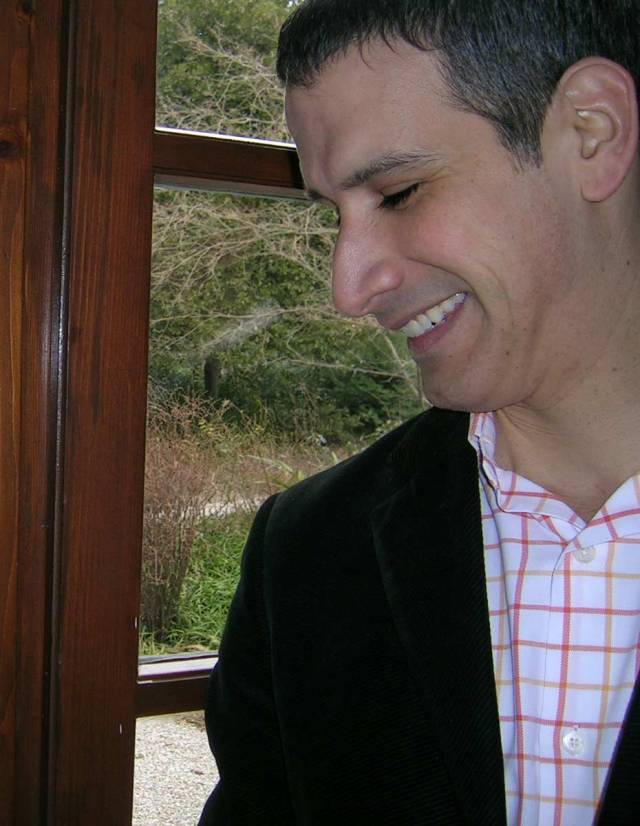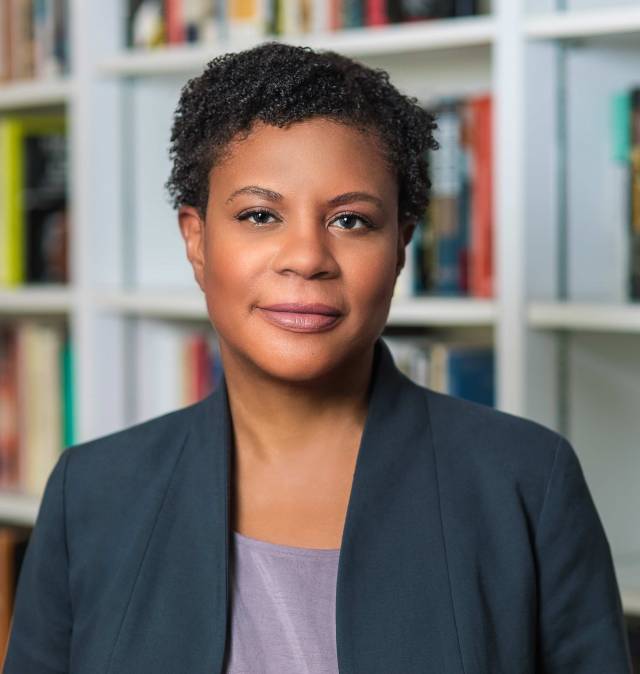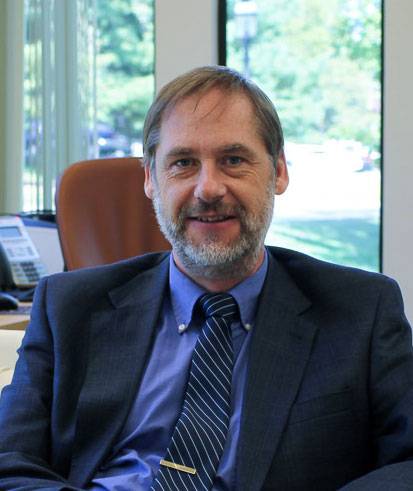Princeton faculty members Rubén Gallo, M. Zahid Hasan, Amaney Jamal, Ruby Lee, Margaret Martonosi, Tom Muir, Eve Ostriker, Alexander Smits, Leeat Yariv, James Stone and Muhammad Qasim Zaman have been named members of the American Academy of Arts and Sciences. Visiting faculty member Alondra Nelson also was elected to the academy.
They are among 276 scholars, scientists, artists and leaders in the public, nonprofit and private sectors elected this year in recognition of their contributions to their respective fields.

Rubén Gallo
Rubén Gallo
Gallo is the Walter S. Carpenter, Jr., Professor in Language, Literature, and Civilization of Spain and a professor of Spanish and Portuguese. He joined the Princeton faculty in 2002. His most recent book is “Conversación en Princeton” (2017) with Mario Vargas Llosa, who was teaching at Princeton when he received the Nobel Prize in Literature in 2010.
Gallo’s other books include “Proust’s Latin Americans” (2014); “Freud’s Mexico: Into the Wilds of Psychoanalysis” (2010); “Mexican Modernity: the Avant-Garde and the Technological Revolution” (2005); “New Tendencies in Mexican Art” (2004); and “The Mexico City Reader” (2004). He is currently working on “Cuba: A New Era,” a book about the changes in Cuban culture after the diplomatic thaw with the United States.
Gallo received the Gradiva award for the best book on a psychoanalytic theme and the Modern Language Association’s Katherine Singer Kovacs Prize for the best book on a Latin American topic. He is a member of the board of the Sigmund Freud Museum in Vienna, where he also serves as research director.

M. Zahid Hasan
M. Zahid Hasan
Hasan is the Eugene Higgins Professor of Physics. He studies fundamental quantum effects in exotic superconductors, topological insulators and quantum magnets to make new discoveries about the nature of matter, work that may have future applications in areas such as quantum computing. He joined the faculty in 2002 and has since led his research team to publish many influential findings.
Last year, Hasan’s lab led research that discovered that certain classes of crystals with an asymmetry like biological “handedness,” known as chiral crystals, may harbor electrons that behave in unexpected ways. In 2015, he led a research team that first observed Weyl fermions, which, if applied to next-generation electronics, could allow for a nearly free and efficient flow of electricity in electronics, and thus greater power, especially for computers.
In 2013, Hasan was named a fellow of the American Physical Society for the experimental discovery of three-dimensional topological insulators — a new kind of quantum matter. In 2009, he received a Sloan Research Fellowship for groundbreaking research.

Amaney Jamal
Amaney Jamal
Jamal is the Edwards S. Sanford Professor of Politics and director of the Mamdouha S. Bobst Center for Peace and Justice. She has taught at Princeton since 2003. Her current research focuses on the drivers of political behavior in the Arab world, Muslim immigration to the U.S. and Europe, and the effect of inequality and poverty on political outcomes.
Jamal also directs the Workshop on Arab Political Development and the Bobst-AUB Collaborative Initiative. She is also principal investigator for the Arab Barometer project, which measures public opinion in the Arab world. She is the former President of the Association of Middle East Women’s Studies.
Her books include “Barriers to Democracy” (2007), which won the 2008 APSA Best Book Award in comparative democratization, and “Of Empires and Citizens,” which was published by Princeton University Press (2012). She is co-editor of “Race and Arab Americans Before and After 9/11: From Invisible Citizens to Visible Subjects” (2007) and “Citizenship and Crisis: Arab Detroit after 9/11” (2009).

Ruby Lee
Ruby Lee
Lee is the Forrest G. Hamrick Professor in Engineering and professor of electrical engineering. She is an associated faculty member in computer science. Lee joined the Princeton faculty in 1998. Her work at Princeton explores how the security and performance of computing systems can be significantly and simultaneously improved by hardware architecture. Her designs of secure processor architectures have strongly influenced industry security offerings and also inspired new generations of academic researchers in hardware security, side-channel attacks and defenses, secure processors and caches, and enhanced cloud computing and smartphone security.
Her research lies at the intersection of computer architecture, cybersecurity and, more recently, the branch of artificial intelligence known as deep learning.
Lee spent 17 years designing computers at Hewlett-Packard, and was a chief architect there before coming to Princeton. Among many achievements, Lee is known in the computer industry for her design of the HP Precision Architecture (HPPA or PA-RISC) that powered HP’s commercial and technical computer product families for several decades, and was widely regarded as introducing key forward-looking features. In the '90s she spearheaded the development of microprocessor instructions for accelerating multimedia, which enabled video and audio streaming, leading to ubiquitous digital media. Lee is a fellow into the Association for Computing Machinery and the Institute of Electrical and Electronics Engineers.

Margaret Martonosi
Margaret Martonosi
Margaret Martonosi, the Hugh Trumbull Adams ’35 Professor of Computer Science, specializes in computer architecture and computer hardware-software interface issues. She was one of the architects of the Wattch power modeling infrastructure, a tool that was among the first to allow computer scientists to incorporate power consumption into early-stage computer systems design. Her work helped demonstrate that power needs can help dictate the design of computing systems. More recently, Martonosi’s work has also focused on architecture and compiler issues in quantum computing.
She currently leads the National Science Foundation’s Directorate for Computer and Information Science and Engineering, one of seven top-level divisions within the NSF. From 2017 until February 2020, she directed Princeton’s Keller Center for Innovation in Engineering Education, a center focused on enabling students across the University to realize their aspirations for addressing societal problems. She is an inventor who holds seven U.S. patents and has co-authored two technical reference books on power-aware computer architecture. In 2018, she was one of 13 co-authors of a National Academies consensus study report on progress and challenges in quantum computing.
Martonosi is a fellow of the Association for Computing Machinery (ACM) and the Institute of Electrical and Electronics Engineers IEEE). Among other honors, she has received a Jefferson Science Fellowship, the IEEE Computer Society Technical Achievement Award, and the ACM SIGARCH Alan D. Berenbaum Distinguished Service Award. She joined the Princeton faculty in 1994.

Tom Muir
Tom Muir
Muir is the Van Zandt Williams, Jr. Class of ’65 Professor of Chemistry and chair of the chemistry department. He joined Princeton in 2011 and is also an associated faculty member in molecular biology.
He leads research in investigating the physiochemical basis of protein function in complex systems of biomedical interest. By combining tools of organic chemistry, biochemistry, biophysics and cell biology, his lab has developed a suite of new technologies that provide fundamental insight into how proteins work. The chemistry-driven approaches pioneered by Muir’s lab are now widely used by chemical biologists around the world.
Muir has published over 150 scientific articles and has won a number of honors for his research. He received a MERIT Award from the National Institutes of Health and is a fellow of American Association for the Advancement of Science and the Royal Society of Edinburgh.

Alondra Nelson
Alondra Nelson
Nelson is the Harold F. Linder Chair in the School of Social Science at the Institute for Advanced Study and a visiting lecturer with the rank of professor in sociology at Princeton. She is president of the Social Science Research Council and is one of the country's foremost thinkers in the fields of science, technology, social inequality and race. Her groundbreaking books include "The Social Life of DNA: Race, Reparations, and Reconciliation after the Genome" (2016) and "Body and Soul: The Black Panther Party and the Fight Against Medical Discrimination" (2011). Her other books include "Genetics and the Unsettled Past: The Collision of DNA, Race, and History" (with Keith Wailoo of Princeton and Catherine Lee) and "Technicolor: Race, Technology, and Everyday Life" (with Thuy Linh Tu). In 2002 she edited "Afrofuturism," a special issue of Social Text.
Nelson's writings and commentary also have reached the broader public through a variety of outlets. She has contributed to national policy discussions on inequality and the implications of new technology on society.
She is an elected fellow of the American Academy of Political and Social Science, the Hastings Center and the Sociological Research Association. She serves on several advisory boards, including the Andrew. W. Mellon Foundation and the American Association for the Advancement of Science.

Eve Ostriker
Eve Ostriker
Ostriker, professor of astrophysical sciences, studies the universe. Her research is in the area of theoretical and computational astrophysics, and the tools she uses are powerful supercomputers and algorithms capable of simulating the birth, life, death and reincarnation of stars in their galactic homes. Ostriker and her fellow researchers build computer models using fundamental physical laws — ones that govern gravity, fluid dynamics and electromagnetic radiation — to follow the evolution of conditions found in deep space.
Ostriker, who came to Princeton in 2012, and her team have explored the formation of superbubbles, giant fronts of hot gas that billow out from a cluster of supernova explosions. More recently, she and her colleagues turned their focus toward interstellar clouds.
The research team uses computing resources through the Princeton Institute for Computational Science and Engineering and its TIGER and Perseus research computing clusters, as well as supercomputers administered through NASA. In 2017, Ostriker received a Simons Investigator Award.

Alexander Smits
Alexander Smits
Smits is the Eugene Higgins Professor of Mechanical and Aerospace Engineering, Emeritus. His research spans the field of fluid mechanics, including fundamental turbulence, supersonic and hypersonic flows, bio-inspired flows, sports aerodynamics, and novel energy-harvesting concepts.
He joined the Princeton faculty in 1981 and transferred to emeritus status in 2018. Smits served as chair of the Department of Mechanical and Aerospace Engineering for 13 years and was director of the Gas Dynamics Laboratory on the Forrestal Campus for 33 years. During that time, he received several teaching awards, including the President’s Award for Distinguished Teaching.
Smits has written more than 240 articles and three books, and edited seven volumes. He was awarded seven patents and helped found three companies. He is a member of the National Academy of Engineering and a fellow of the American Physical Society, the American Institute of Aeronautics and Astronautics, the American Society of Mechanical Engineers, the American Association for the Advancement of Science, and the Australasian Fluid Mechanics Society.

James Stone
James Stone
Stone is a leading researcher on the use of large-scale direct numerical simulations to study the gas dynamics of a wide range of astrophysical systems, from protostars to clusters of galaxies. He has also made important contributions to understanding the structure and evolution of the interstellar and intergalactic medium. Stone is the Lyman Spitzer Jr., Professor of Theoretical Astrophysics, Emeritus, and professor of astrophysical sciences and applied and computational mathematics, emeritus.
The code packages that Stone and his collaborators have shared have enabled thousands of papers in fields of astrophysics ranging from the lowest to highest energies (interstellar clouds to accreting black holes) and the smallest to largest scales (planet-forming disks to galaxy clusters). Many projects have used features particular his codes and would have been impossible without his generosity in making the packages available to the community. In part due to Stone’s efforts, computational fluid dynamics modeling is now the de facto standard tool for research in many areas of astronomy.
Stone joined Princeton in 2003 and transferred to emeritus status in 2019. He is currently on the faculty at the School of Natural Sciences at the Institute for Advanced Study. At Princeton, he served as chair of the astrophysical sciences department and served from 2009-17 as director of the Princeton Institute for Computational Science and Engineering (PICSciE), which provides access to high-performance computing systems on campus, and training and education in scientific computation and numerical analysis. In 2018, he received the Brouwer Award in recognition of outstanding contributions to the field of dynamical astronomy.
Leeat Yariv
Yariv is the Uwe Reinhardt Professor of Economics. An expert in applied theory and experimental economics, her research interests concentrate on game theory, political economy, psychology and economics. She joined the faculty in 2018. Yariv also is director of the Princeton Experimental Laboratory for the Social Sciences.
She is a member of several professional organizations and is lead editor of American Economic Journal: Microeconomics, a research associate with the Political Economy Program of the National Bureau of Economic Research, and a research fellow with the Industrial Organization Programme of the Centre for Economic Policy Research.
She is also a fellow of the Econometric Society and the Society for the Advancement of Economic Theory, and has received numerous grants for research and awards for her many publications.

Muhammad Qasim Zaman
Muhammad Qasim Zaman
Zaman, who joined the Princeton faculty in 2006, is the Robert H. Niehaus ’77 Professor of Near Eastern Studies and Religion and chair of the Department of Near Eastern Studies.
He has written on the relationship between religious and political institutions in medieval and modern Islam, on social and legal thought in the modern Muslim world, on institutions and traditions of learning in Islam, and on the flow of ideas between South Asia and the Arab Middle East. He is the author of “Religion and Politics under the Early Abbasids” (1997), “The Ulama in Contemporary Islam: Custodians of Change” (2002), “Ashraf Ali Thanawi: Islam in Modern South Asia” (2008), “Modern Islamic Thought in a Radical Age: Religious Authority and Internal Criticism” (2012), and “Islam in Pakistan: A History” (2018). With Robert W. Hefner, he is also the co-editor of “Schooling Islam: The Culture and Politics of Modern Muslim Education” (2007); with Roxanne L. Euben, of “Princeton Readings in Islamist Thought” (2009); and, as associate editor, with Gerhard Bowering et al., of the “Princeton Encyclopedia of Islamic Political Thought” (2013). Among his current projects is a book on South Asia and the wider Muslim world in the 18th and 19th centuries.
In 2017, Zaman received Princeton’s Graduate Mentoring Award. In 2009, he received a Guggenheim Fellowship.
The mission of the academy: Founded in 1780, the American Academy of Arts and Sciences honors excellence and convenes leaders from every field of human endeavor to examine new ideas, address issues of importance to the nation and the world, and work together “to cultivate every art and science which may tend to advance the interest, honor, dignity, and happiness of a free, independent, and virtuous people.”






